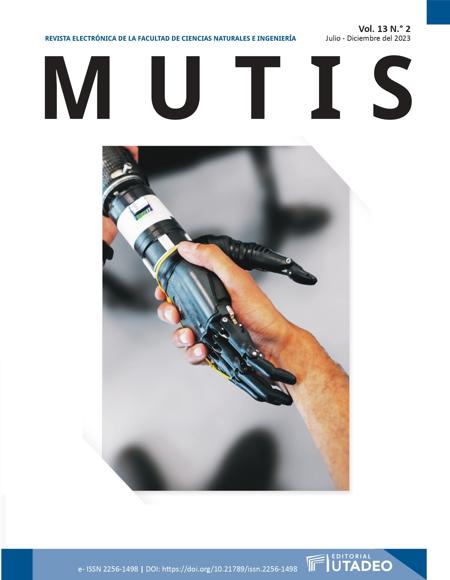
Esta obra está bajo una licencia internacional Creative Commons Atribución-NoComercial-CompartirIgual 4.0.
Esta obra está bajo una licencia internacional Creative Commons Atribución-NoComercial-CompartirIgual 4.0.
Resumen
Harvesting tasks in coffee crops in Colombia are conducted manually. Unfortunately, at the moment there is a low supply of labor to carry out these tasks. That is why this article describes the process of designing a mobile platform to help mitigate the aforementioned problem. There are many ways to design the platform, therefore, choosing the most suitable morphology is of vital importance. For this, the design team used the APTE methodology to select, without bias, the morphology that best met the design criteria and the parameters found when analyzing the user’s needs and the particular operating conditions of the platform. Similarly, the topology and physical layout of the mobile platform components were selected based on structural design and analysis criteria obtained from a CAD model. The results of the applied methods served as the basis for building the prototype of the mobile platform that aims to solve the problem.
Citas
Akao, Y. (1994). «Development History of Quality Function Deployment». The Customer Driven Approach to Quality Planning and Deployment. Tokyo: Asian Produc-tivity Organization.
Arcila P., J., Farfán V., F., Moreno B., A., Salazar G., L. F., & Hincapié G., E. (2007). Sistemas de producción de café en Colombia. Chinchiná: Cenicafe.
Boston Dynamics. (2020, September 16t). Boston Dynamics Quadruped . Re-trieved from Boston Dynamics: https://www.bostondynamics.com/legacy
Bpgwerks. (2020, September 16). Bpgwerks DVT Shredder. Retrieved from Bpgwerks: www.bpgwerks.com
Burge, S. (2020, August 22). “Pugh Matix” from the System Engineering Tool Box. Retrieved from Burge Hughes Walsh: https://www.burgehugheswalsh.co.uk/
Castañeda-Beltrán, J. A., Montoya-Restrepo, E. C., Oliveros-Tascón, C. E., & Vé-lez-Zape, J. C. (2011). Evaluación de un Método para la Recolección de Café en Terre-nos de Alta Pendiente. Revista Cenicafé, 32-47.
De La Bretesche, B. (2000). La méthode APTE : Analyse de la valeur, analyse fonctionnelle. Paris: Pétrelle.
Es, H. v., Schindelbeck, R., & Ristow., A. (2017). Soil Health Manual Series Fact Sheet Number 16-04. Ithaca: Cornell University-School of Integrative Plant Sciences.
Federación Nacional de Cafeteros de Colombia. (2017, February 17). CON-CURSO – Proyecto de Apoyo a la Cosecha Asistida de Café. Retrieved from Federación Nacional de Cafeteros de Colombia: www.federaciondecafeteros.org
Ingenieure, V. D. (2004). Entwicklungsmethodik für Mechatronische Systeme (Design Methodology for Mechatronic Systems). Düsseldorf: VDI 2206.
Méthode APTE. (2020, August 21). The method. Retrieved from Methode APTE: http://www.methode-apte.com/
Mott, R., Vavrek, E., & Wang, J. (2013). Machine Elements in Mechanical Design. New York: Pearson.
Trossen Robotics. (2020, September 16). Phantom X . Retrieved from Trossen Robotics: www.trossenrobotics.com/phantomx-ax-hexapod-mk1.aspx
Universidad de la Rioja. (2020, September 16). VineRobot. Retrieved from Universidad de la Rioja: www.unirioja.es/apnoticias/servlet/Noticias?codnot=3303&accion=detnot
Wong, J. (2008). Theory of ground vehicles. New York: John Wiley & Sons.
Wong, J. (2010). Terramechanics and Off-Road Vehicle Engineering. Oxford: Butterworth-Heinemann. https://doi.org/10.1016/B978-0-7506-8561-0.00006-3
Descargas
Datos de publicación
Perfil evaluadores/as N/D
Declaraciones de autoría
- Sociedad académica
- Universidad de Bogotá Jorge Tadeo Lozano
- Editorial
- Universidad de Bogotá Jorge Tadeo Lozano

 PDF (English)
PDF (English)
 FLIP
FLIP













